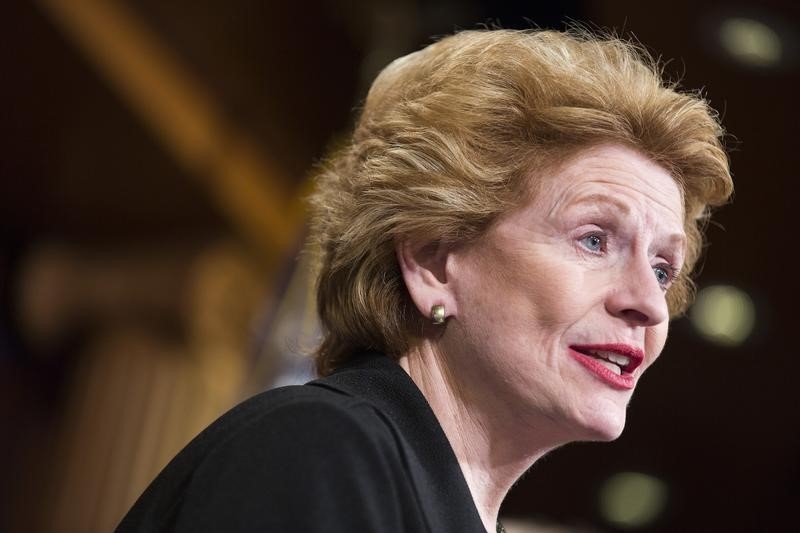By Krista Hughes and Jason Lange
WASHINGTON (Reuters) - U.S. lawmakers' proposals to sanction countries that deliberately weaken their currencies could derail a Pacific trade pact that is a key part of the Obama administration's pivot to Asia, the Treasury warned on Tuesday.
The Senate could vote on a Trade Promotion Authority bill to speed deals through Congress as early as next week, when Japan's Prime Minister Shinzo Abe addresses a joint meeting of Congress.
Japan is a key partner in the 12-nation Trans Pacific Partnership (TPP), and supporters of a deal say that countries negotiating with Washington want to be sure that concessions they make will not unravel during ratification in Congress.
U.S. Treasury Secretary Jack Lew said consultations with other TPP countries showed they would never sign up to rules that risk constraining central banks, whose easy money policies to stimulate growth can help to weaken currencies.
"Seeking enforceable currency provisions would likely derail the conclusion of the TPP given the deep reservations held by our trading partners," Lew wrote in a letter to senior lawmakers.
The Japanese yen and euro have fallen sharply against the dollar due to money-printing programs by their central banks, making companies based there more competitive in exports.
An amendment drafted by Republican Rob Portman and Democrat Debbie Stabenow, to be introduced at a Senate Finance Committee debate on a package of trade bills on Wednesday, would beef up rules against currency manipulation. These currently allow the administration discretion on how to get trading partners to toe the line.
Trade promotion authority, or TPA, allows Congress to set negotiating objectives for trade in exchange for a yes-or-no vote. That gives trading partners certainty deals will not be picked apart.
"Without strong currency enforcement, it will not have my vote," said Stabenow, whose state of Michigan is home to U.S. auto manufacturers worried about more competition from TPP partner Japan, such as Ford and General Motors (NYSE:GM).
Republican John Thune, a member of the Senate leadership team, said it would be "perfect timing" for the fast track bill to go for a full Senate vote during Abe's visit.
"You've got to strike while the iron is hot," he said.
But Senate Democratic leader Harry Reid said he was concerned about the rush on the legislation, which is opposed by many Democrats worried about the impact of trade deals on jobs and faces a close vote in Congress.

"Slow this thing down a little bit," said Reid, who has voted consistently against free trade deals.